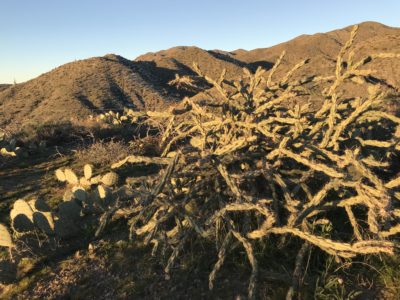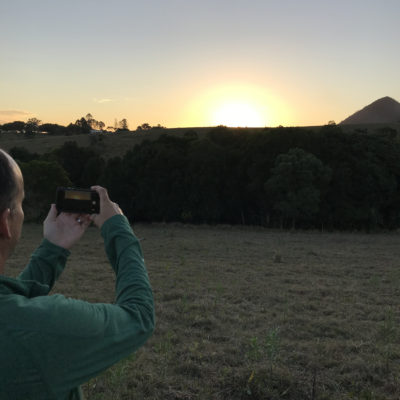
Oh boy.
Got me a bit of a discovery over this last week. It was bit prickly, like the cacti in this photo near Carefree, Arizona, on ancestral lands of the Yavapai and Yavapai Apache. A discovery on grief.
I consider myself a person who is quite familiar with sadness. And loss. And grief. Though familiar, I’m also quite a skilled avoider. Some of that sadness and loss and grief is life — many of the great spiritual teachers I’ve encountered have said that to live is to be wounded. There is wound in the departure. There is wound in the openness to love. There is wound in the risk of heart cracking open. There is wound in challenging old norms and risking the departure that must come from this. Some of that sadness / loss / grief is what others have done to and with me. Some of it is what I have done to and with others. Some of it just is — back to my spiritual teachers.
I reached a point last week at which, despite my familiarity, I became aware that I’ve felt plenty of sad in my time. That comes naturally. And sometimes dreadfully. Grief however, is more. It is, among many things, a practice. It requires some consciousness. Some effort. Some ritual. Some grace. Some ceremony. Some friends. Some try and try again. Some let go that is beyond letting go. Some dumb luck.
Oh boy. I need to grieve.
Yes, it’s personal. I have my version of why this is so necessary now. I’m also aware that there is grieving that is so much more universal. Think environment. Think atmosphere of animated conflict and reactivity. Think the masked story of colonization, stealing lands, and building privilege through slavery. Think of the raging fear that permeates so much of human behavior that shows up in the form of competition, or even sabotage in many arenas of life. Think politics that has digressed to tantrums needing to trump tantrums. Think of economics in which only few have access to the narrative of dream portrayed as equally accessible to all.
Oh boy. Maybe we all need to up our game on grieving. Maybe just because — that’s growing up. Maybe because it helps free us. Trauma, individual and collective, carries some pretty thick iron chains.
A few days ago, in one of the cumulative moments of dumb luck, good friends, grace, and enough pain for which there was nothing left to do but surrender, I did just that. It may have had a bit to do with my cohost and friend, Quanita — she has depth and skill to dip people to the deep. It may have had a bit to do with hanging out with the large group of 70 UCC pastors, and the deliciousness of 14 in small group and cohort in five days together. These are kind and thoughtful people so accustomed to hosting others in these deeply human experiences. I’m surprised by the joy found in legitimizing grief, by all of us welcoming it together.
No, I’m not sure what all of this grieving looks like for me. I am clear that the fruit of surrender is ripe on the tree of spiritual being in human journey. I am clear, and grateful, that taking the next first step is a powerful operating principle. I’m lucky as hell to have people who know about such things, because largely, they’ve taken the journey themselves, and are on it now.
I believe that we humans have so much to free through our necessary entanglement with each other — going further requires together, not alone. It is my experience that enough container for a group to get to the thing under the thing under the thing — to witness in others, to wander it through self, to welcome it through the third space that is the figurative and sometimes literal center — this gets us there.
Oh boy. Grief.
Good grief.
I hope for all of us.
There is, oddly, a joy, in the point of legitimizing the grief. Lots of life in it. Just as there is in desert cacti.
 Photo by Amanda Fenton
Photo by Amanda Fenton

